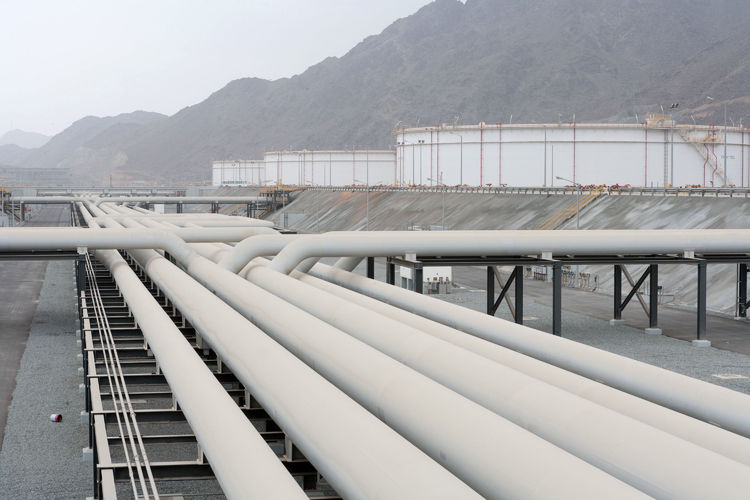- OPEC Ministers Say the Market Might Need More Oil Cuts
OPEC and other major crude-producing nations may need to extend output cuts into the second half of the year to re-balance the market, oil ministers for Iran and fellow group member Qatar said.
Global oil supplies have decreased as the Organization of Petroleum Exporting Countries and producers outside the group comply with a six-month deal to curb output that took effect on Jan. 1, Qatar’s Energy Minister Mohammed Al Sada said Wednesday at a news briefing in Doha. “It’s too early to make a judgement,” he said, adding that markets may re-balance in the third quarter.
“We kept it open to reconsider the rollover, and rollover is an option if needed,” Al Sada told Bloomberg TV in Qatar’s capital.
In principle, OPEC will have to cut output in the second half, Iran’s Oil Minister Bijan Namdar Zanganeh said, according to the Fars news agency. The issue needs further study before the group can make a decision, Zanganeh said, after meeting in Tehran with his counterpart from Venezuela, also an OPEC member.
The organization agreed in November to impose quotas on its members for the first time in eight years, in an effort to stem a supply glut that had depressed crude prices. OPEC enlisted support from 11 other producers on Dec. 10 in an historic deal to remove as much as 1.8 million barrels of oil a day from the market. OPEC expects to decide whether to extend the cuts at its bi-annual meeting in Vienna in May.
Benchmark Brent crude fell as much as 61 cents in London on Wednesday and was trading at $54.86 a barrel at 1:06 p.m. local time, on course for a third daily decline after industry data showed U.S. stockpiles surged.
Most OPEC members are happy with a crude price of about $60 a barrel, Zanganeh said, according to the Tasnim news agency. OPEC’s compliance with the accord on output has been very good, and non-OPEC producers have begun cutting production and pledged to reach their targets quickly, the Oil Ministry’s Shana news service reported him as saying. Iran is the third-biggest producer in OPEC, behind Saudi Arabia and Iraq, while Qatar ranks 11th.
A committee in charge of monitoring compliance with the deal is due to release its first report on Feb. 17, disclosing January production levels for participating countries, Qatar’s Al Sada said. The five-member committee, led by Kuwait, will use as many as six sources of data to measure output, he said.
Last month, Saudi Arabia’s Energy and Industry Minister Khalid Al-Falih said an extension of the agreement probably wouldn’t be necessary, given high levels of compliance and expectations of strong demand. Nonetheless, “all players have indicated their willingness to extend, if necessary,” he said on Jan. 16 in Abu Dhabi.
The oil market would be re-balanced when global inventories, currently near record highs, approached their five-year average level, Al Sada said. The third quarter of this year would be a “good estimate” for when this is likely to happen, he said.
Investment in the oil industry has tumbled during the past three years, and a failure to reverse this trend could hurt future supply and cause a shortage three years from now, Al Sada said. Current oil demand is healthy and will increase by 1.1 million to 1.2 million barrels a day in 2017, he said.

 Naira3 weeks ago
Naira3 weeks ago
 News4 weeks ago
News4 weeks ago
 Naira4 weeks ago
Naira4 weeks ago
 Naira3 weeks ago
Naira3 weeks ago
 Jobs3 weeks ago
Jobs3 weeks ago
 Travel3 weeks ago
Travel3 weeks ago
 Naira3 weeks ago
Naira3 weeks ago
 Investment4 weeks ago
Investment4 weeks ago






























